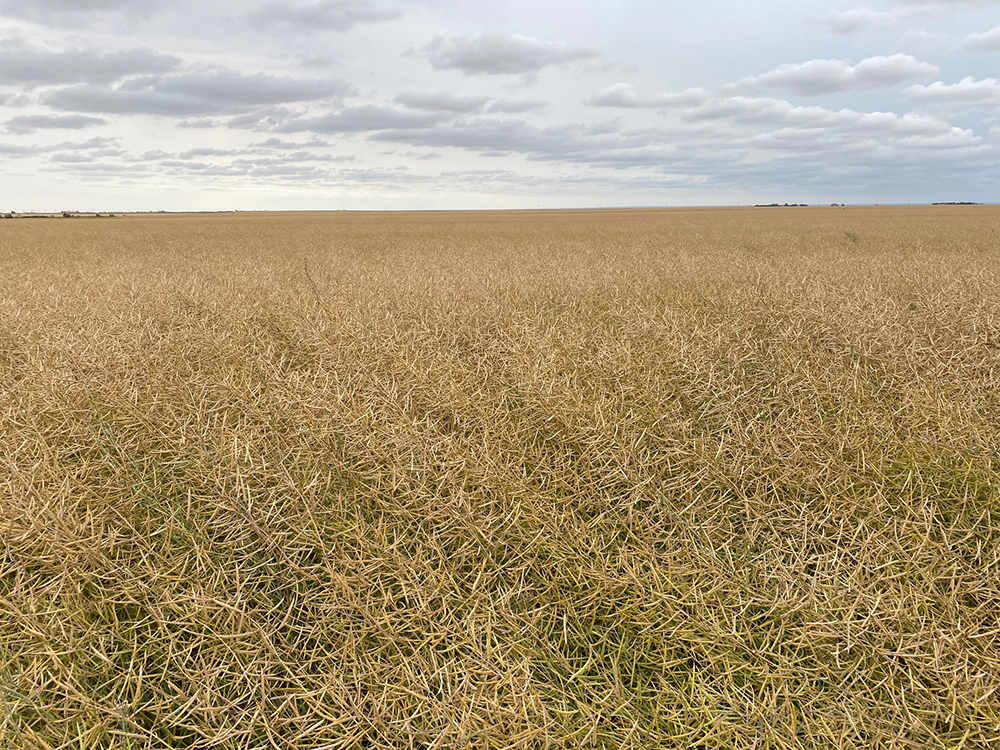CFIA expected to loosen gene editing rules

The Canadian Food Inspection Agency is expected, either this afternoon or tomorrow, to publish a decision on how gene-edited crops will be regulated.
The federal government, it appears, will soon say that gene edited crops will not be regulated like genetically modified crops or transgenic crops.
Instead, oversight will be similar to conventionally bred plants.
That means gene edited crops will be exempt from Part V of the Seeds Regulations.
Part V oversees the “release of plants that may impact the Canadian environment. This includes new crop kinds, as well as plants with novel traits,” the CFIA says on its website.
Genome editing, or gene editing, is a technology that scientists use to change the genetic code of a plant. The best known gene editing tool is CRISPR-Cas9, a technique used to cut sections of DNA. Scientists from California and France won the 2020 Nobel Prize in Chemistry for their discovery of CRISPR.
If the CFIA does regulate gene edited crops like conventional plant breeding, it would represent a large win for the plant science industry and possibly Canadian farmers.
Supporters of gene-edited crops, including many plant breeders, believe it could revolutionize crop development. It will allow scientists to quickly and precisely change a plant’s DNA to achieve desired traits, maybe to improve disease resistance in wheat or to design a canola hybrid with healthier oil in the seed.
From May 19 to Sept. 16, the CFIA consulted with the ag industry and interested parties on whether a plant designed with gene editing should be subject to Part V of the regulations.
A document explaining the CFIA’s position for the consultation said crops developed with conventional plant breeding are not regulated under Part V.
“Breeding generally doesn’t result in new characteristics that would affect safety. Similarly, when a product of gene editing resembles its conventional counterparts, it would also be exempt from Part V,” the CFIA said.
“Regardless of the methods used in development, the underlying genetic change or number of edits, the plant is exempt from Part V,” provided:
• It is not a new crop kind
• It does not include DNA from another species (foreign DNA).
• It does not have the capacity to negatively impact the environment.
Since Sept. 16, when the consultation closed, the CFIA has reviewed comments from the crop science industry, farm groups and environmental organizations about the regulation of gene edited crops.
The Canadian Biotechnology Action Network criticized the CFIA’s decision before the government announced its final position.
“Consumer, environmental and farmer groups across Canada are denouncing new regulatory changes expected to be published today by Health Canada that will allow private corporations to release onto the market many new genetically engineered foods without any government oversight,” CBAN said in a statement earlier today.
CBAN represents 16 groups and has a mandate to monitor and raise awareness about issues relating to genetic modification in food and farming. The groups include Greenpeace, the Council of Canadians, the National Farmers Union and organic farmer associations.
CBAN said Health Canada is abandoning its authority to regulate “genetically modified foods developed with gene editing techniques.”
The CFIA position is different. It says gene editing is a new plant breeding tool that is not the same as a genetically modified or transgenic crop.
“(It) allows plant developers to make targeted changes to a plant’s DNA. This editing tool can help speed up breeding programs … combine useful traits, enhance existing qualities of the plant (and) shorten the breeding cycle.”
If Health Canada decides to oversee gene edited crops such as conventionally bred crops, it would build upon a previous decision earlier this year.
In March, Health Canada said that gene edited crops are safe.
“Through a review of the current scientific knowledge regarding the use of gene editing technologies … Health Canada concludes that the use of gene editing technologies does not present any unique safety concerns compared to other methods of plant breeding.”
That position puts Canada on the same footing as other countries, such as the United States, Japan, Australia and Argentina, which have decided that gene edited crops are safe.
American crop science companies have already moved forward with gene editing because the U.S. government provided clarity on the technology.
In March 2018, U.S. agriculture secretary Sonny Perdue said gene-edited crops will be treated similarly to conventional plant breeding and will be largely exempt from regulation.
That has allowed American innovators and plant breeders to get a head start with gene edited crops.
As an example, a Minnesota firm has used gene editing to design a soybean that produces high-oleic oil. The company produced four million bushels of the crop in the U.S. in 2020.
robert.arnason@producer.com
Source: producer.com

